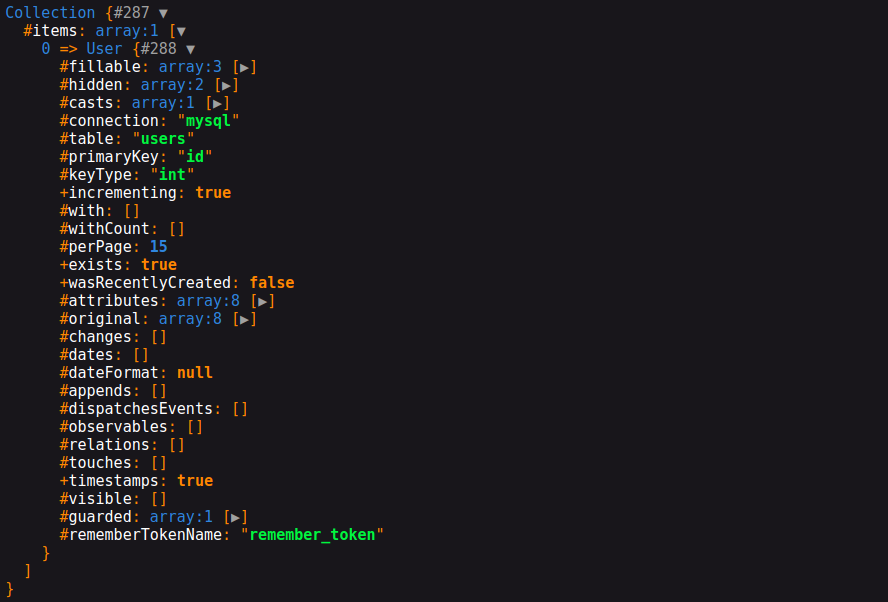Custom Eloquent collections to make queries more readable in Laravel
If you’ve worked with Laravel, you might be aware of the fact that all the multi-result sets returned by Eloquent are instances of the Illuminate\Database\Eloquent\Collection object. So, for instance, if you have a User model, you can get all the users like so.
$users = App\Models\User::all();
dd($users);
As you can tell, the result is the instance of the Illuminate\Database\Eloquent\Collection object.

Now, as the Eloquent collections are essentially Laravel’s base collection, you can use all of the collection methods with Eloquent collections as well.
For instance, you can use the following Eloquent query on the Book model to get the recent 20 records from the books table like so.
$books = App\Book::all()
->orderBy('id', 'desc')
->take(20);
Now, this looks alright. But there’s a way you can make this query more readable and elegant.
The newCollection method
The way this works is you have to override a newCollection method in your Eloquent model which will return the custom collection’s object. And that custom collection would eventually be extending the Eloquent Collection class. Let’s see how.
So, if we want to create a custom collection for the Book model, we can do it like so.
<?php
namespace App\Models;
use App\Support\BookCollection;
use Illuminate\Database\Eloquent\Model;
class Book extends Model
{
/**
* Create a new Eloquent Collection instance.
*
* @param array $models
* @return \Illuminate\Database\Eloquent\Collection
*/
public function newCollection(array $models = [])
{
return new BookCollection($models);
}
}
The Custom Collection
Here, the App\Support\BookCollection is just a simple class that will act as a custom collection. Here’s how it would look like.
<?php
namespace App\Support;
use App\Support\BookCollection;
use Illuminate\Database\Eloquent\Collection;
class BookCollection extends Collection
{
public function fetchLatestBooks()
{
return $this->orderBy('id', 'desc')->take(20);
}
}
As you can see, the custom collection is extending the Illuminate\Database\Eloquent\Collection class and now you can define your own methods with readable names over here.
With this in place, the previous query of the Book model can be rewritten like so.
$books = App\Book::all()->fetchLatestBooks();
And that’s how you can make your Eloquent queries more readable and understandable!
👋 Hi there! This is Amit, again. I write articles about all things web development. If you enjoy my work (the articles, the open-source projects, my general demeanour... anything really), consider leaving a tip & supporting the site. Your support is incredibly appreciated!



